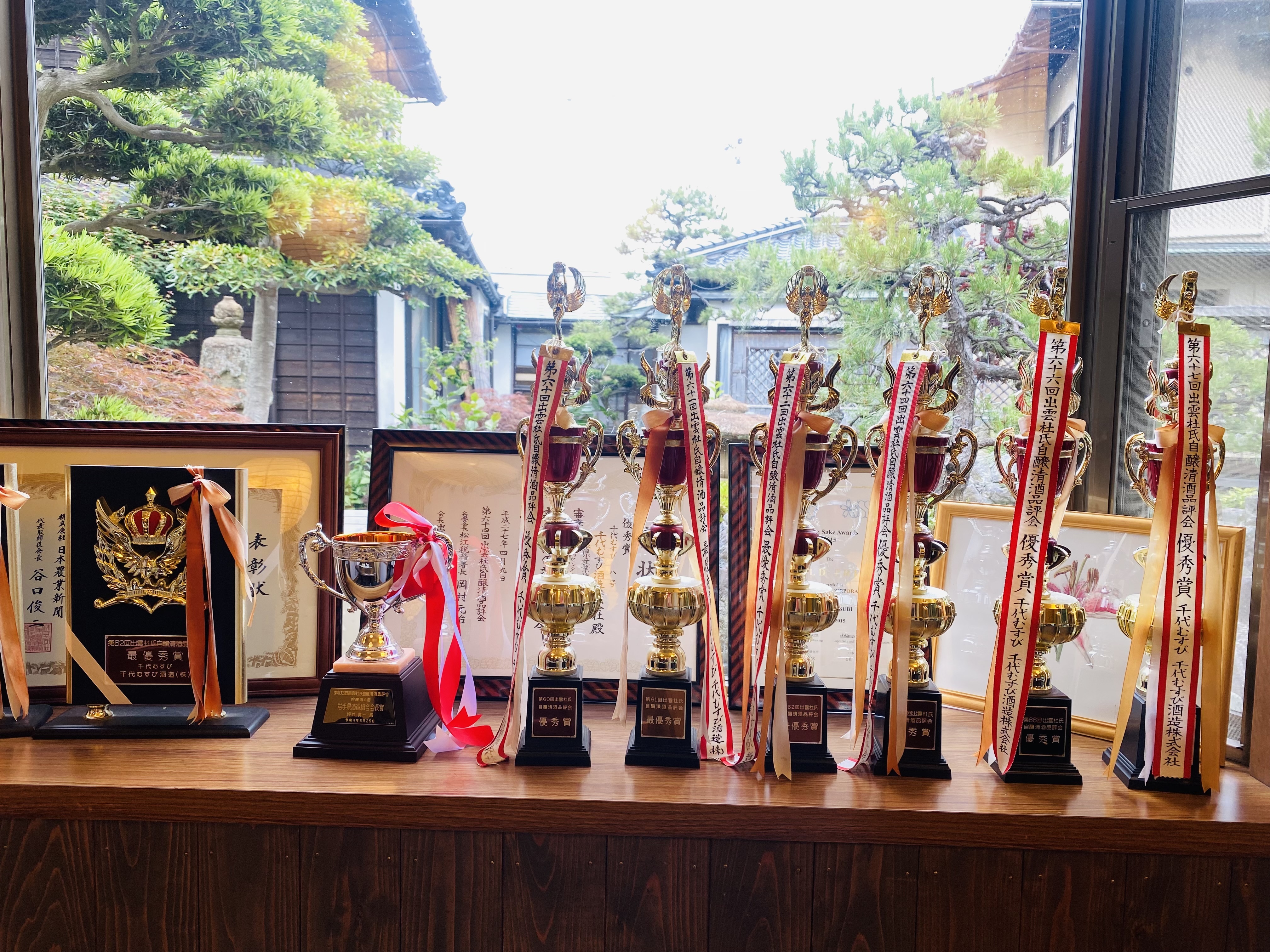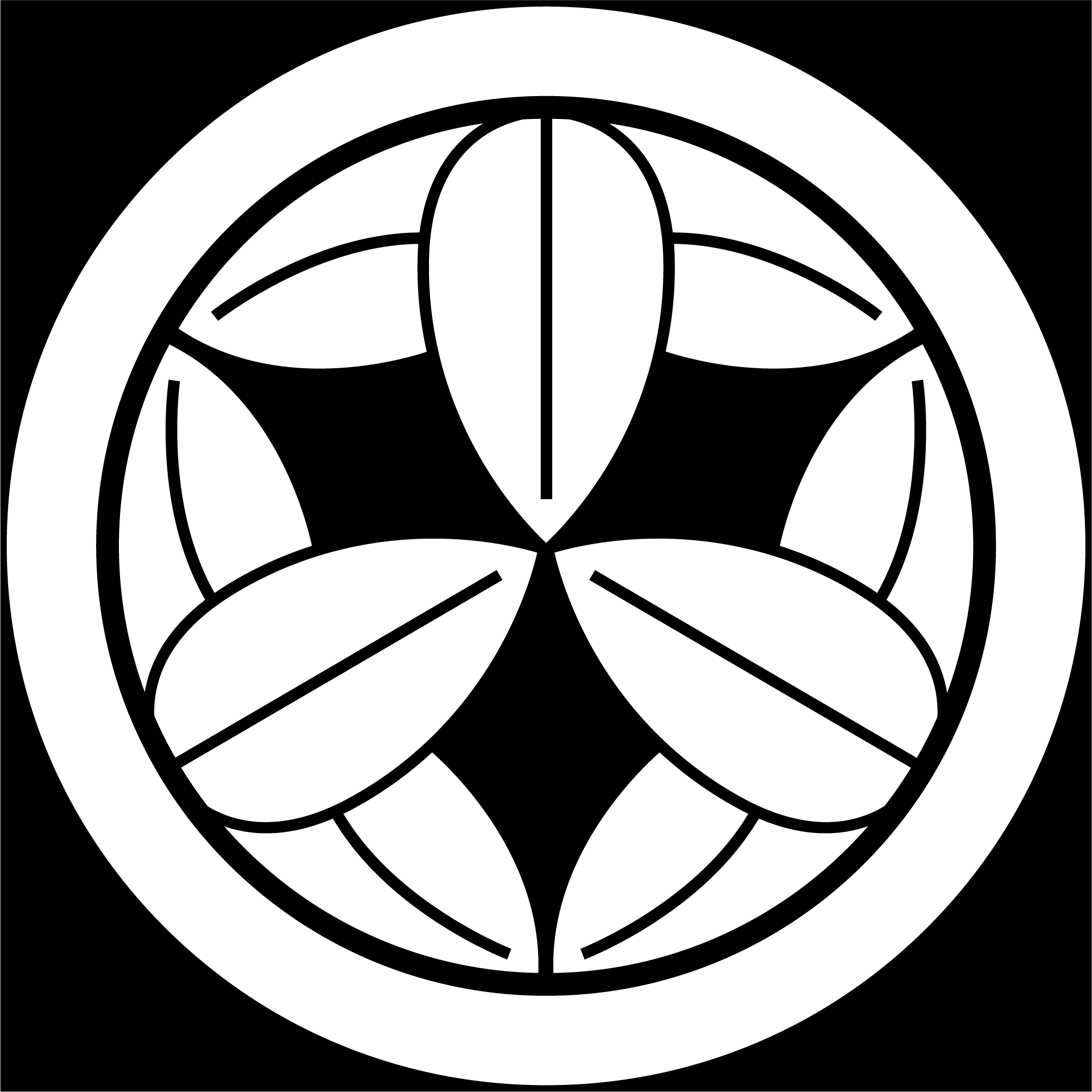Treasuring unchanging connections
Founded in 1865 in the Agarimichi-cho district of Sakaiminato, the Chiyomusubi Sake Brewery relocated twice, eventually finding itself in its current location in Taisho-cho.
In 1953, it took first place in the first ever New Sake Award Ceremony in Tottori Prefecture. The brewery did not rest on its laurels however, investing in the brewery by remodelling the Koji room, constructing facilities for a Ginjo production as part of a general goal of pouring their energy into the production of better sake.
Their main brand shares its name with the brewery, Chiyomusubi. This name translates as “a connection lasting a thousand generations”.
The brewery’s philosophy is to bring people together with its sake, creating unbreakable bond that will never weaken.
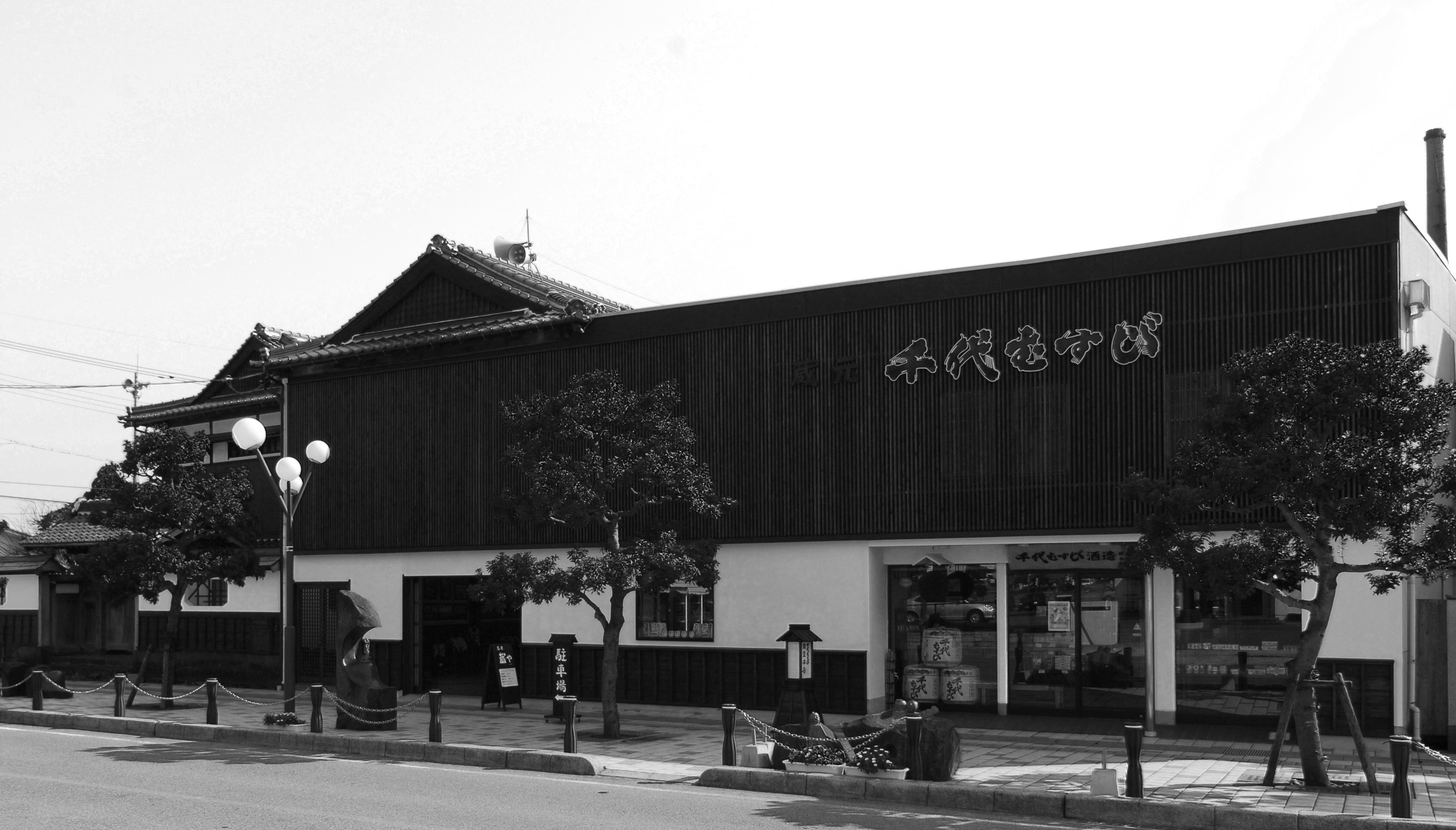
The terroir of Sakaiminato
To the east of the Chiyomusubi Sake Brewery is the Sea of Japan; the the west, the city of the city of Sakaiminato. Surrounded in turn by the Nakaumi lake.
The word “Minato” means “port”, and true to its name Sakaiminato has long been an important harbour on the Sea of Japan.
Since the Meiji era it has long been an important point for international commerce on the continent, with goods flowing between Incheon, Busan and Wonsan, and today it remains a major fishing harbour with the biggest catches on the Sea of Japan, including the largest takings of bluefin tuna and crab, as well as being noted for squid, mackerel and sardine.
It is also the hometown of Shigeru Mizuku, manga artist of Gegege-no-Kitaro – there is a street dedicated to him which draws a constant stream of tourists. The Chiyomusubi Sake Brewery stands on this very street.
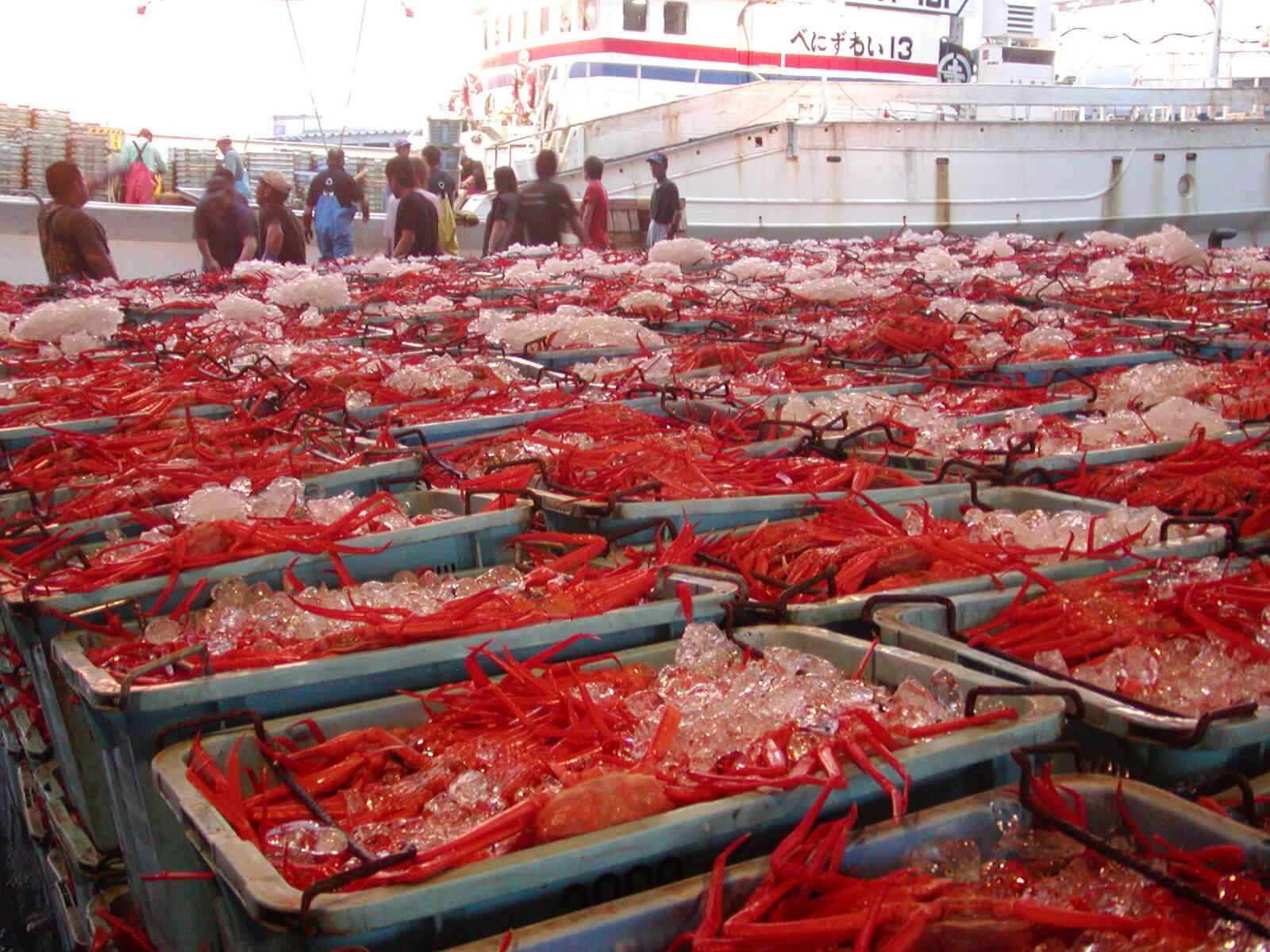
Sake brewing rooted in the land
At the Chiyo Musubi Brewery, over 90% of the rice used in the brewing process is sourced from within their home prefecture of Tottori. Along with using Yamada Nishiki and Gohyaku Mangoku rice, both famous sake rices, the brewery also uses local to Tottori Prefecture varieties, including Goriki and Torikeisake #105.
Initiatives to make sake exclusively bought from contracted farmers have also earnt the brewery further popularity, and demonstrate the value that the brewery places on its relationships with local producers and its deep set roots in the local community as it works to produce trustworthy, honest sake.
The brewery has even started growing its own rice, and the depth of their relationship with rice is reflected in the sake they make.千代むすび酒造では、酒造りに使用する米の9割以上を、地元の鳥取県産を使用しており、酒造好適米である山田錦や五百万石と共に、鳥取県の地酒米であるを強力(ごうりき)や鳥系酒105号を使用しています。
地元の契約農家からの直接買い取りした米だけで仕込む取り組みも人気で、生産者との関係を大切にし、地域に根差した安心安全なお酒を醸しています。
また、自社での米作りも始めるなど、米に対する真摯な姿勢がお酒に表れています。
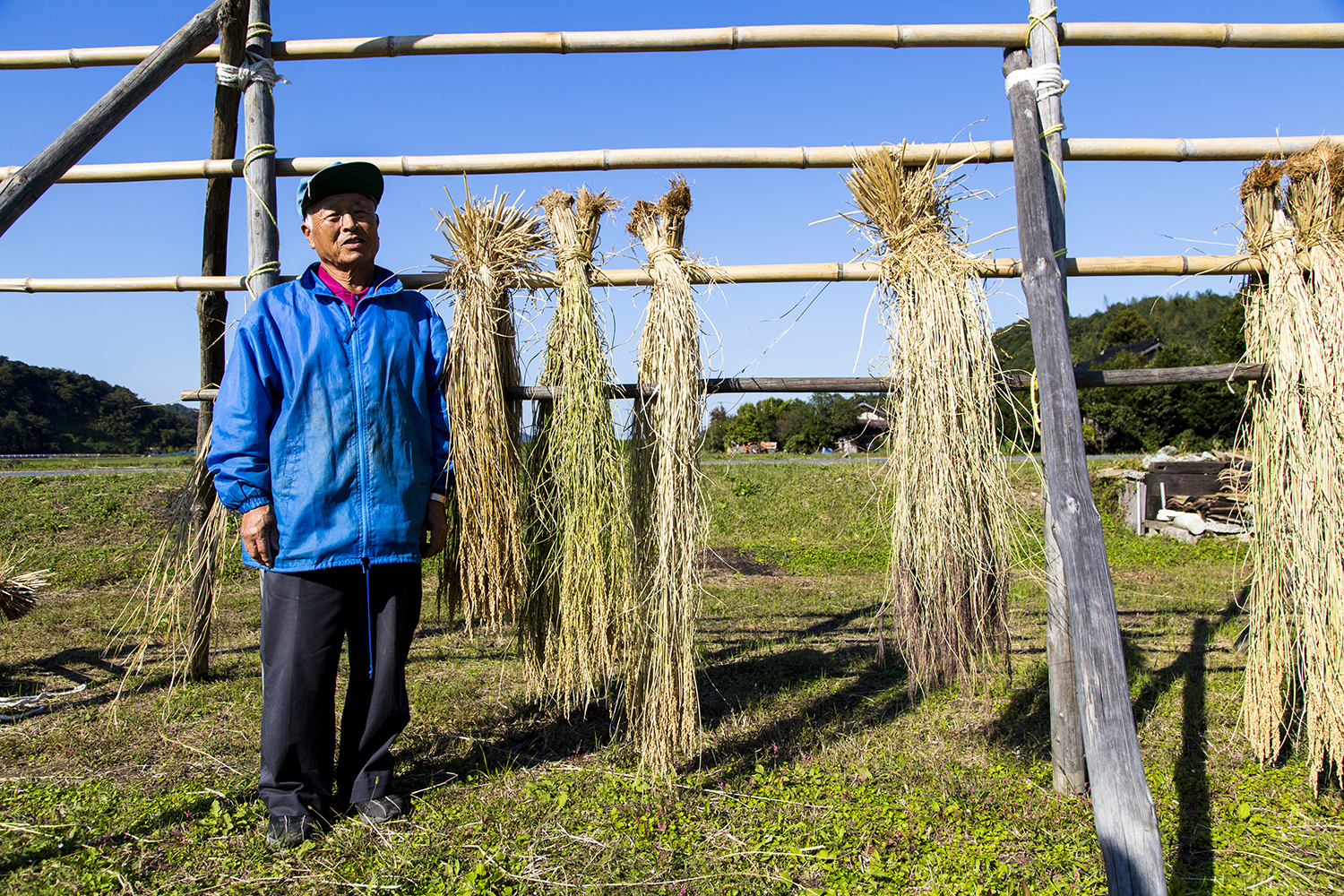
An energetic brewery powered by youthful enthusiasm
Sou and Takumi Okasora have been engaged in running the brewery since 2017 and 2020 respectively, having first gained experience working in different fields.
Under their leadership, a breath of fresh air has blown through the brewery thanks to their youthful enthusiasm.
The average age of the employees at Chiyomusubi is 30 years old, notably youthful in comparison to the industry average, and the brewery is overflowing with lively energy.
Kazakiri has been embued with plenty of this youthful energy, rounded in style but with a serious backbone.
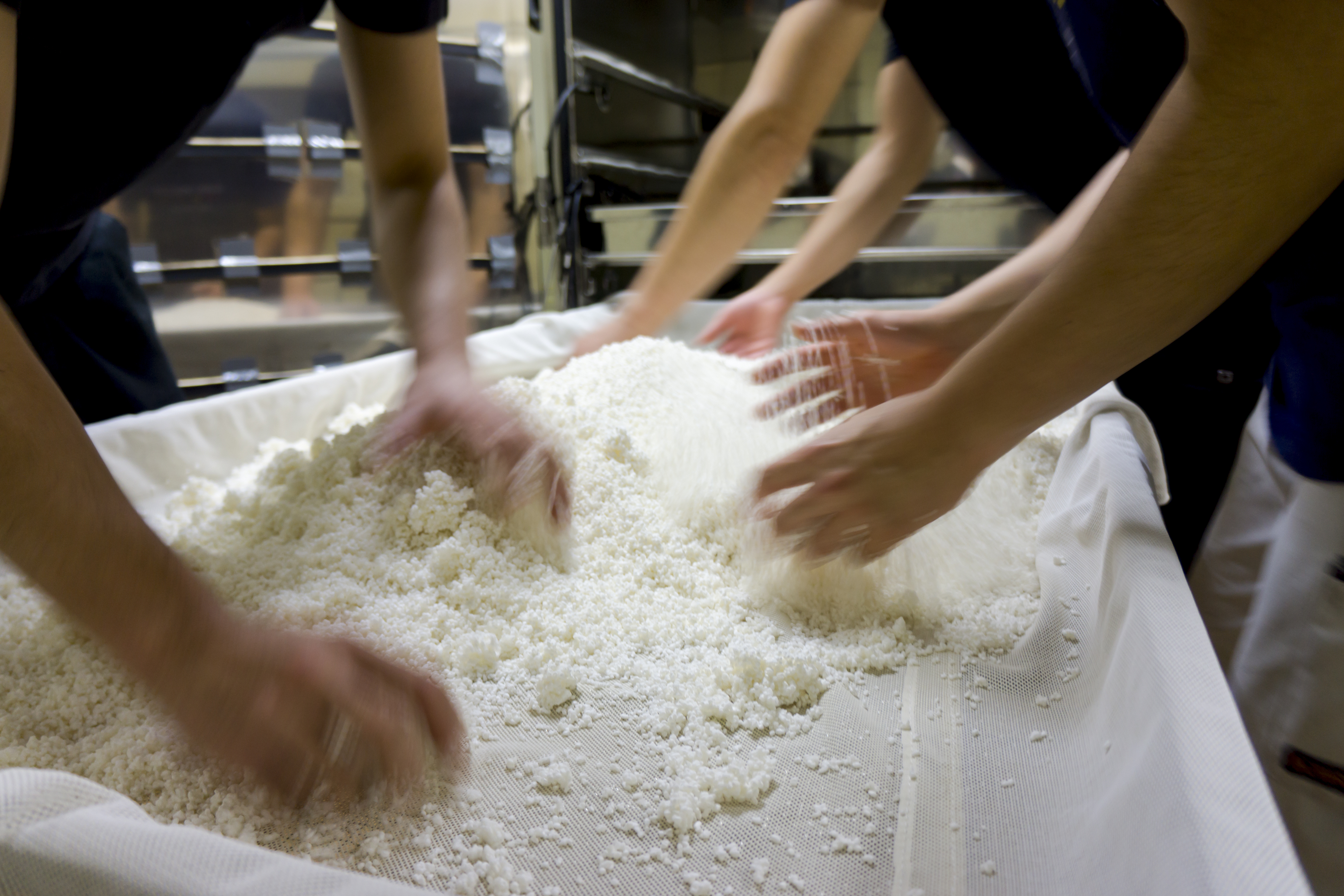
Chiyomusubi Sake Brewery Prizes and Awards(from 2019)
Daiginjo Shizuku・・・Fine Sake Awards – Gold Medal, 2019, 2020
London Sake Challenge – Gold Medal
Nanbu Toji 2022 – 2nd Place
New Sake Appraisal – Gold Medal
Sorah・・・Fine Sake Awards – Gold Medal, 2019
London Sake Challenge – Silver Medal, 2019
London Sake Challenge – Platinum Pedal, 2020
Kura Master- Gold Medal, 2020, 2021
Goriki 50・・・Milan Sake Challenge – Platinum Medal, 2019
Concours Mondial des Feminalise, Gold Medal, 2020, 2022
Oonigori ・・・Fine Sake Awards – Gold Medal Gold Medal, 2019
Torikei 105・・・Kanzake Concours – Gold Medal, 2019
Junmai Ginjo Goriki 50 Muroka Nama・・・London Sake Challenge Gold Medal, 2020
Junmai Goriki 60 Muroka Nama・・・London Sake Challenge Silver Medal, 2020
Hoshi-shigure・・・IWC – Silver Medal, 2021
